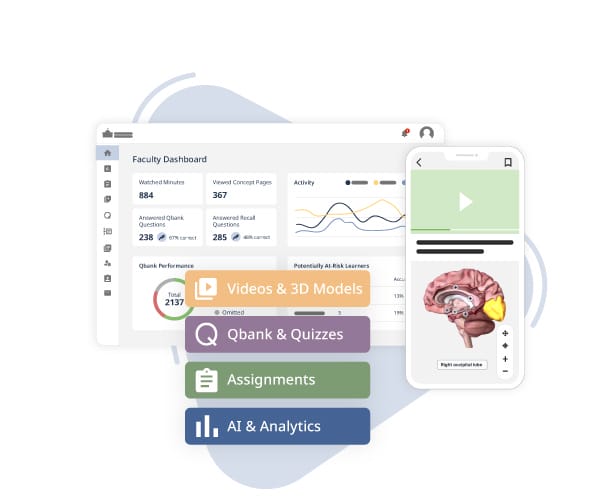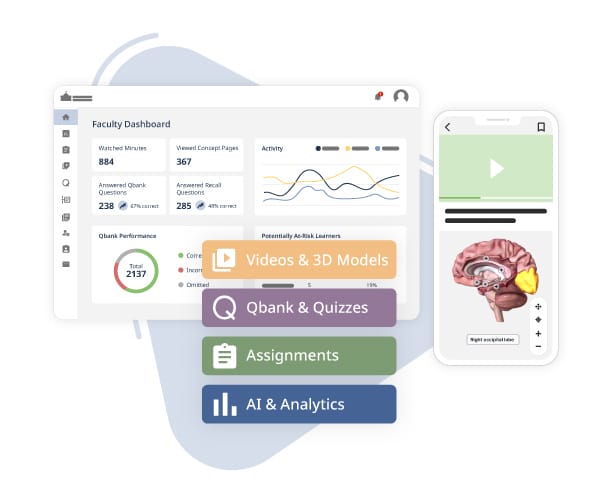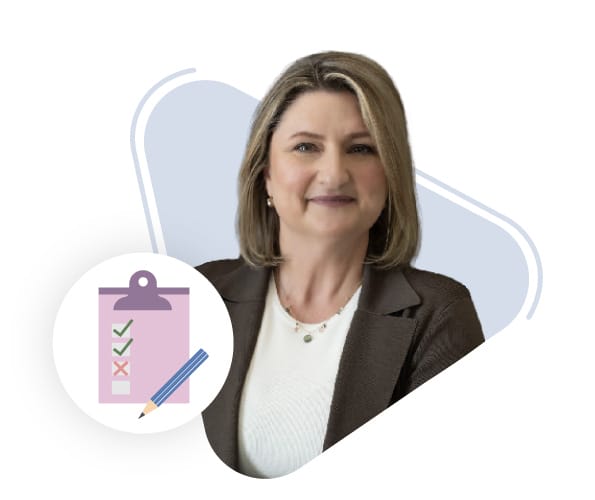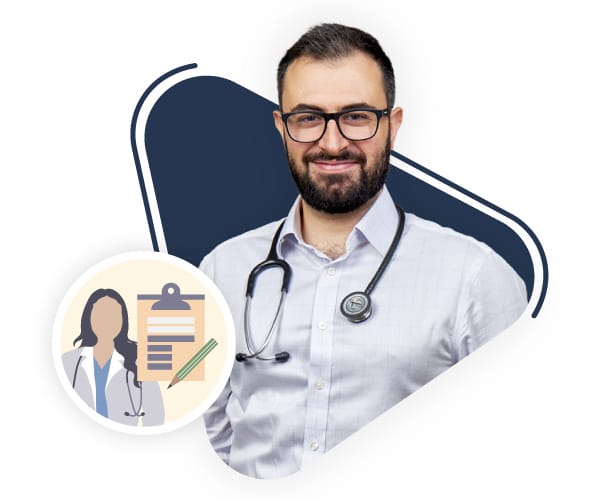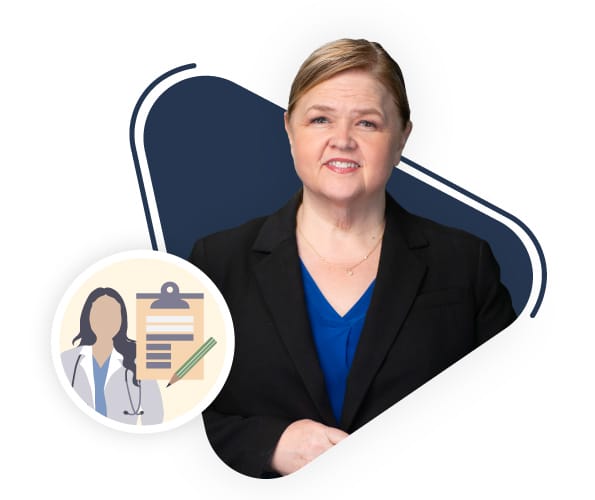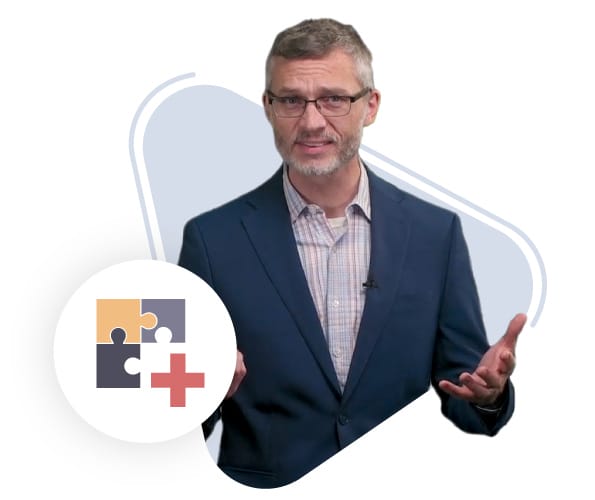Lecturio Free Online Events
Watch Recorded Webinars On Demand
Fill out the form to get access to recordings of all of our events from the last 90 days, as well as associated downloadable resources.
AI Meets Assessment: Efficiency, Accuracy, and Evidence-Based Design
Host:
This exclusive webinar explored evidence-based best practices for MCQ design and the transformative role of AI in assessment creation. Attendees learned how to craft high-quality questions that enhance learning and competency while streamlining faculty workload. Hosted by Dr. Goran Stevanovski, this session showed participants how to:
- Identify key principles of evidence-based MCQ design in medical education.
- Evaluate the strengths and limitations of MCQs in today’s assessment landscape.
- Explore the role of AI in question generation and quality assurance.
- Understand how AI-powered tools can enhance assessment strategies.
- Apply best practices to create high-quality MCQs that improve learner outcomes.
The session also featured a live demonstration of Lecturio’s AI-powered MCQ writer, showcasing its potential to enhance question quality, streamline assessment creation, and support faculty and learners alike.
The Digital Transformation of Care
Host:
Healthcare is evolving fast, and digital transformation is leading the way. Join us for an insightful webinar exploring how emerging technologies are reshaping nursing practice and care delivery. In this session, our guest speaker, internationally recognized nurse futurist and innovation expert, Dr. Bonnie Clipper, will guide attendees through:
Virtual Nursing & Hybrid Care Models – Learn how digital tools like AI, telehealth, and virtual nursing can enhance workflow efficiency and patient outcomes.
Technology-Driven Workforce Solutions – Discover strategies to address workforce shortages, optimize clinician workload, and enhance engagement using digital innovations.
Future-Proofing Healthcare – Explore how to integrate cutting-edge technologies into care delivery while maintaining a human-centered approach.
This one-hour session is designed for healthcare leaders, educators, and clinicians looking to stay ahead in an era of rapid technological change. Reserve your spot now and be part of the future of care!
Building Clinical Confidence: Effective Methods for Teaching Physical Exams
Host:
Want to help your students to perform physical examinations competently? Then join us for an insightful webinar that tackles the challenge of bridging anatomical knowledge and practical application head-on. Our guest speaker, Dr. Stephen Holt, Associate Program Director for Ambulatory Education in the Primary Care Program at the Yale School of Medicine, will show educators how to teach learners to perform a thorough and differential-diagnosis-directed history and physical examination, as well as assessing the psychomotor and interpersonal skills required to perform the exam. Register now to save your seat!
Empowering Critical Thinkers: Implementing Problem-Based Learning in healthcare education
Host:
Want to learn how to implement Problem-Based Learning in your teaching practice? Then sign up for our latest event now!
In this interactive session, Dr. Goran Stevanovski will demonstrate how you can use PBL to improve your learners’ critical thinking skills, problem-solving abilities, and communication skills. You will leave this event equipped with proven methods for improving knowledge retention and discover how to implement and evaluate PBL in your teaching practice.
Bridging Theory and Practice: Clinical Judgment Approaches for NP Educators
Host:
As educators of future Nurse Practitioners, we face the crucial task of developing our students’ clinical judgment skills. How can we effectively bridge the gap between theoretical knowledge and practical application? Join us for an insightful webinar that tackles this challenge head-on.
Clinical Reasoning Essentials for PA Educators
Host:
In our latest webinar, guest speaker Tony Miller, Distinguished Professor of Physician Assistant Studies at Shenandoah University, will guide attendees through the challenges of teaching clinical reasoning, with a special focus on PA educators. Attendees will have the opportunity to explore the application of clinical reasoning in the didactic and clinical phases, as well as for remediation, with relevant content for all health professions educators. Join our exclusive session to discover vital tips on developing strategies to teach clinical reasoning to future clinicians, so they can identify pertinent data from the history, physical exam findings, and diagnostic studies.
Preparing Your Students for Exam Success
Host:
When equipped with evidence-based strategies and planning guidance, learners do best in high-stakes exams. In our latest webinar, our guest speaker Louise Jones PhD, director of the Graduate Medical Education (GME) Research and Quality Improvement program at Northeast Georgia Medical Center (NGMC), empowered educators with the tools needed to guide students through licensure exams with confidence, including MCAT®, USMLE®, Subject Exams, COMLEX, PANCE® and many more.
Clear the clutter: Cognitive load tips for health professions educators
Host:
Understanding Cognitive Load Theory (CLT) is key to maximizing learning in your students. CLT is based on the premise that the brain has a limited working memory capacity. In the final edition of our Start Smart series, Dr. Adonis Wazir will highlight key elements of the theory and provide recommendations for enhancing instruction, as well as tips on how you can reduce extraneous load and manage intrinsic load in your learners.
Teaching test-taking skills Equip students with winning strategies
Host:
Ensuring students are prepared for both course exams and standardized tests is vital. In this webinar, Dr. Rhonda Lawes, Lecturio’s Chief Nursing Officer and Adjunct Professor at Oral Roberts University, will equip faculty with effective teaching strategies that directly improve students’ test performance. In doing so, educators can boost overall academic outcomes, reduce the frustration of repeated poor performances, and prepare learners for their careers.
How to create effective assessments: Time-saving strategies for educators
Host:
In this webinar, Dr. Adonis Wazir took attendees through key information about instructional design, assessments, and showed how they can manage their time effectively at the start of the semester. Faculty members received guidance on instructional design models and practical tips, from setting clear learning objectives to determining assessment strategies in the classroom.
Clinical Reasoning and Formulating a Differential Diagnosis
Host:
Differential diagnosis, the systematic process of considering various possible medical conditions that could explain a patient’s symptoms of clinical findings, is essential for healthcare professionals to diagnose and treat patients accurately. In this webinar, Dr. Stephen Holt, Associate Professor of Medicine at Yale University, helped educators break down the process of teaching clinical reasoning, focusing on teaching future clinicians to formulate a differential diagnosis.
Foundations of Clinical Reasoning: Cognitive processes and models
Host:
Clinical reasoning is a crucial ability for all practicing clinicians, yet explicit instruction in clinical reasoning is often lacking. Although teaching clinical reasoning poses challenges, this cluster of skills can and should be developed to ensure safe patient outcomes. In this webinar, clinical reasoning expert Dr. Raja-Elie Abdulnour guides educators through the cognitive processes and models that learners experience as they progress through the stages of clinical reasoning. When teaching clinical reasoning, educators must provide the right amount of data at the right time to avoid cognitive overload, and to do this they must recognize the learners’ stage to provide the appropriate guidance. Dr. Abdulnour shows educators teaching future clinicians the discrete steps of clinical reasoning, including explanations of key concepts and terminology in the clinical reasoning process.
